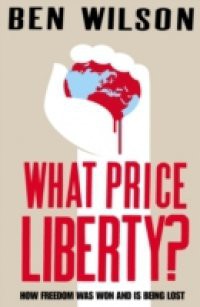Individual liberty will be the defining issue of the twenty-first century, while fear of terrorism, crime and social chaos has put our ideas of liberty into retreat in recent years.It is clear that there is not just a crisis of liberty, but a crisis in the way people talk about liberty. How do we, as individuals, negotiate the maximum amount of freedom in such a complex world? How can we resist the growth of intrusive authoritarianism without exposing ourselves to crime, terrorism and other risks? Even those who instinctively support social freedoms are losing confidence when confronted with such hard truths.History provides a guide to answering these questions. We have a rich legacy to draw upon to help define our approach to current problems. Yet it is a history which we are in danger of forgetting or misreading. In What Price Liberty? Ben Wilson travels through four centuries of British, American and European history, elaborating not just how civil liberties were constructed in the past, but how they were continually re-thought -and re-fought - in response to modernity. The last chapters put into context the controversies of the last decade or so-the threat of terrorism and the rise of the database nation. If liberty is to survive now it must, like it did in the past, adapt to new circumstances. But to do this we need to agree about the value we place on liberty.

